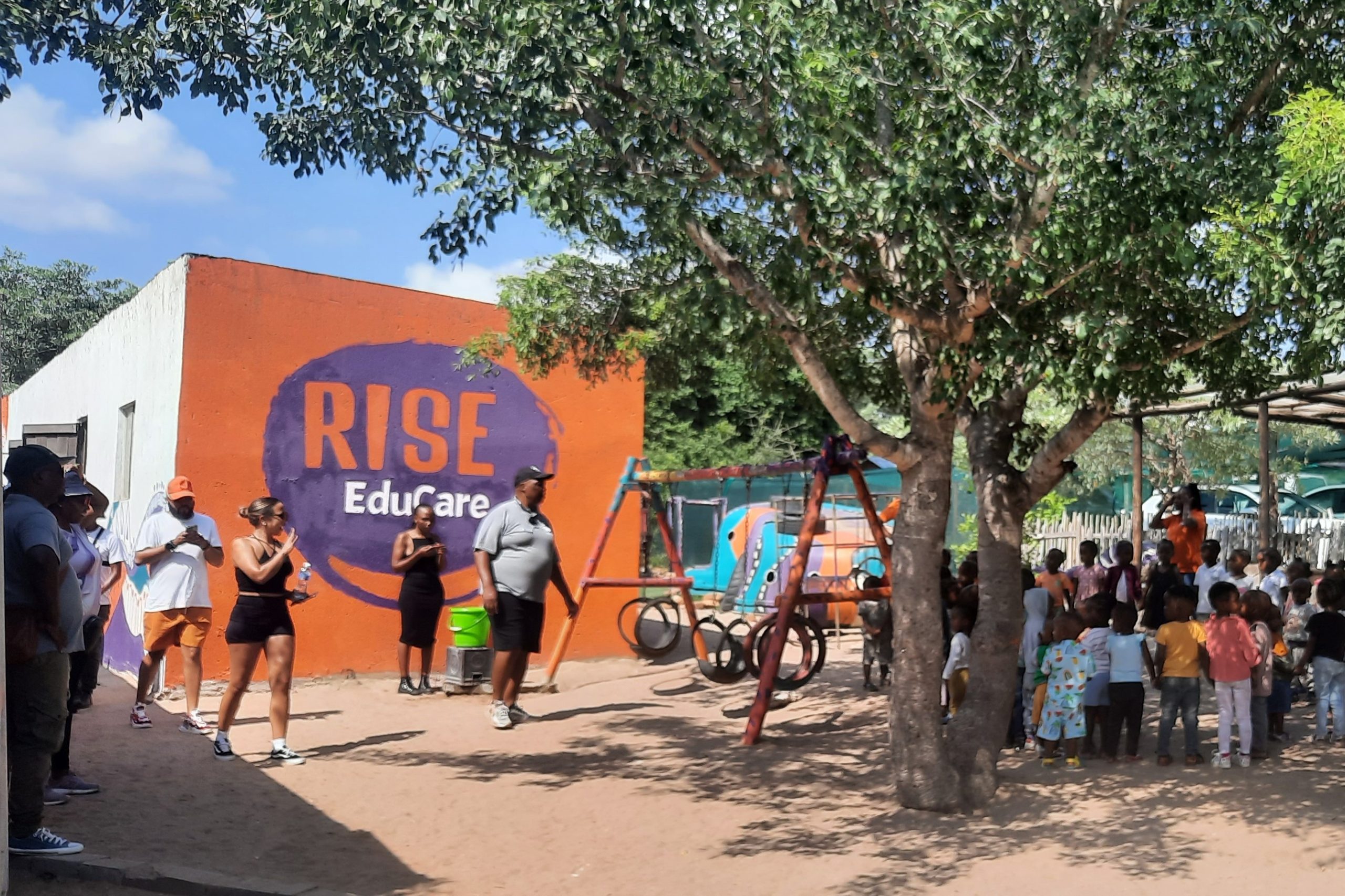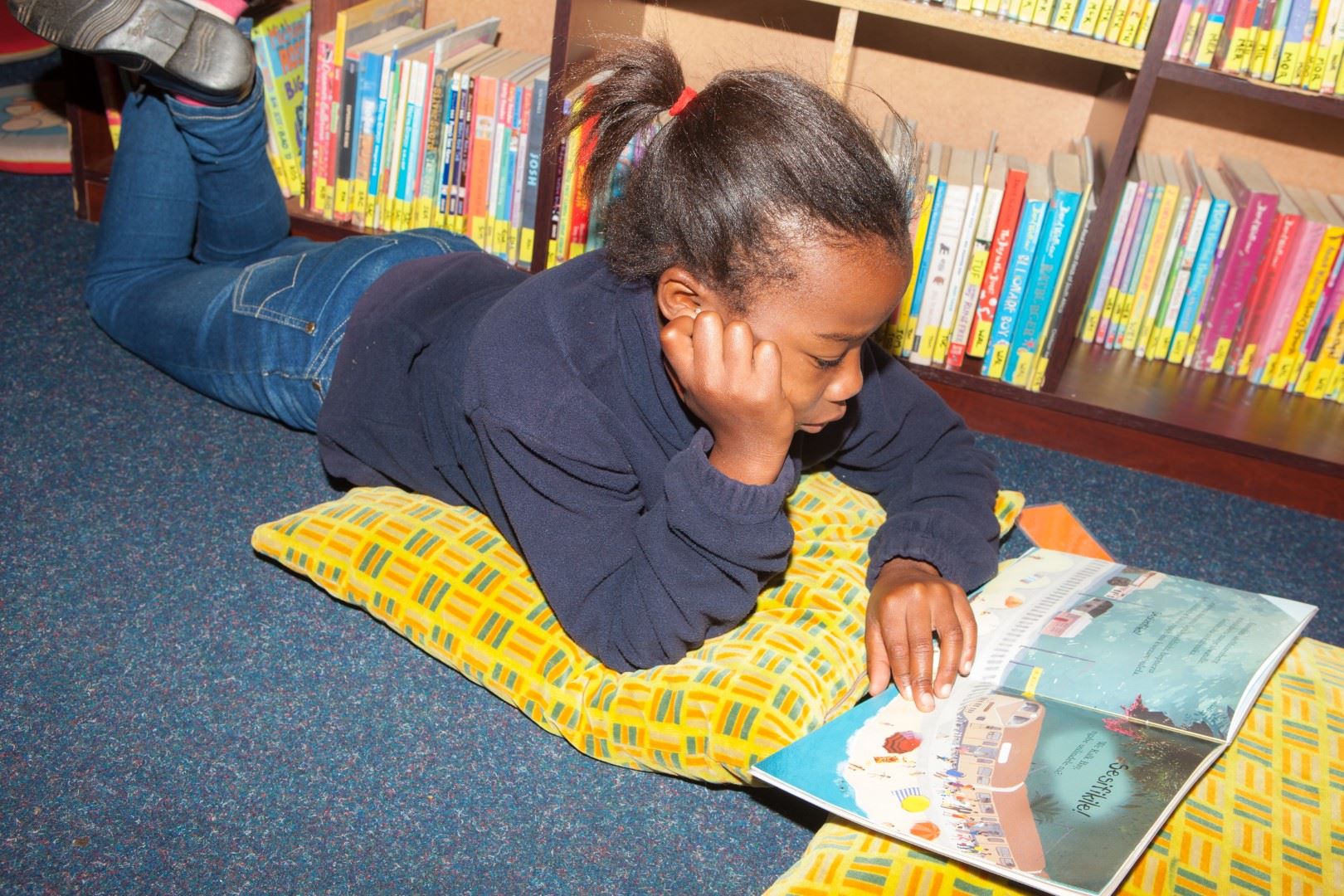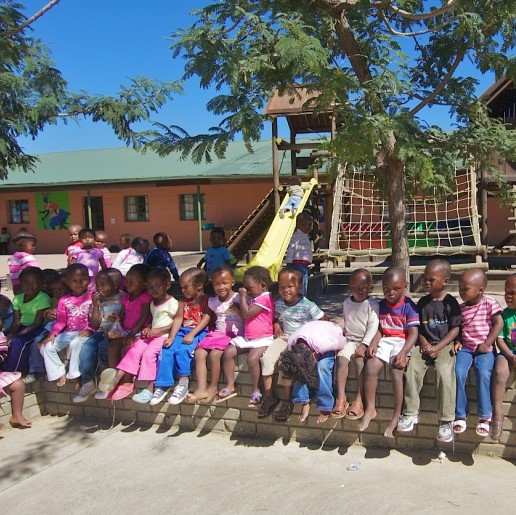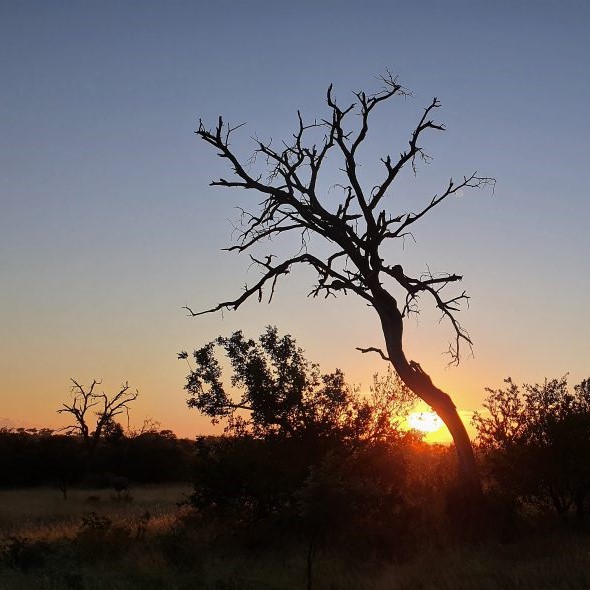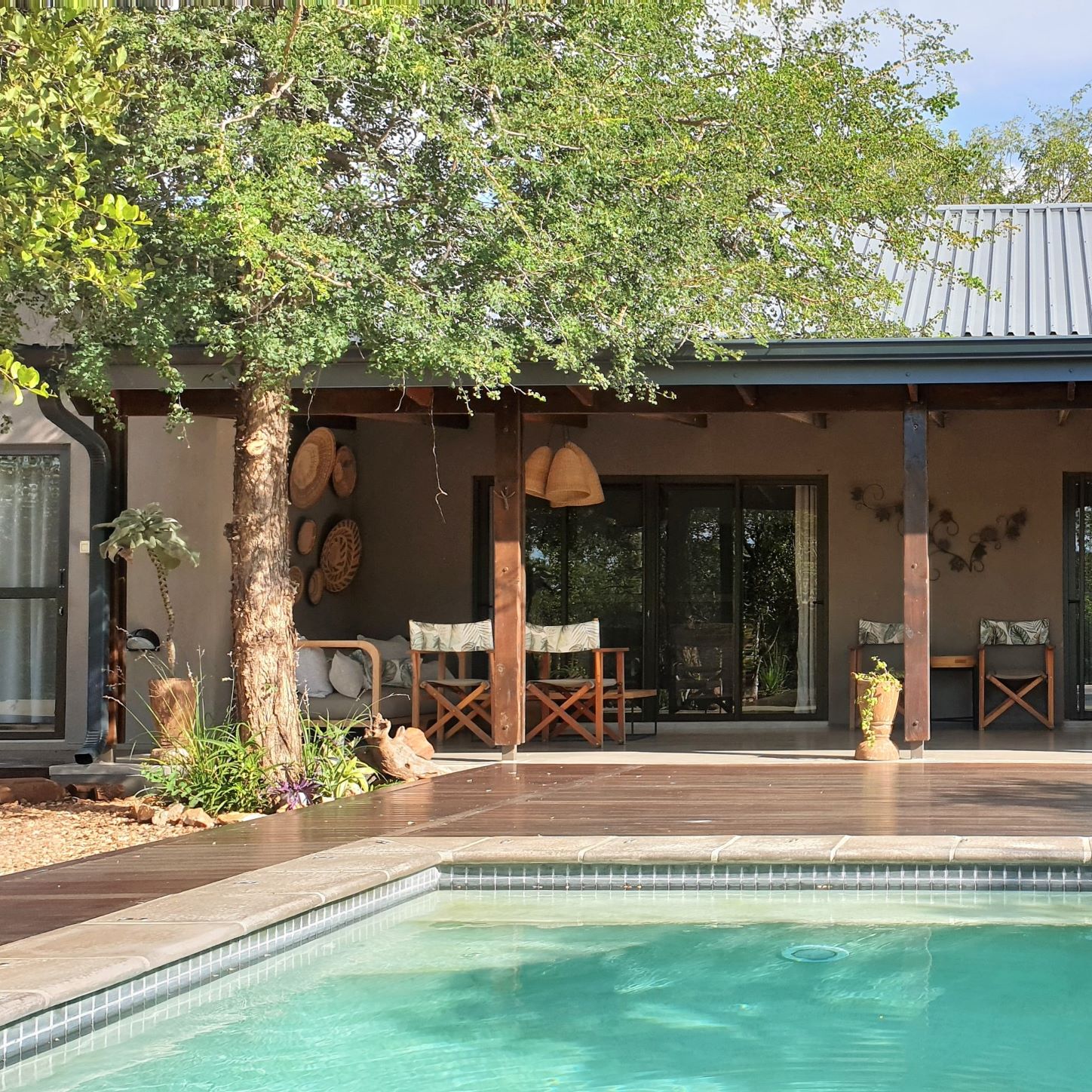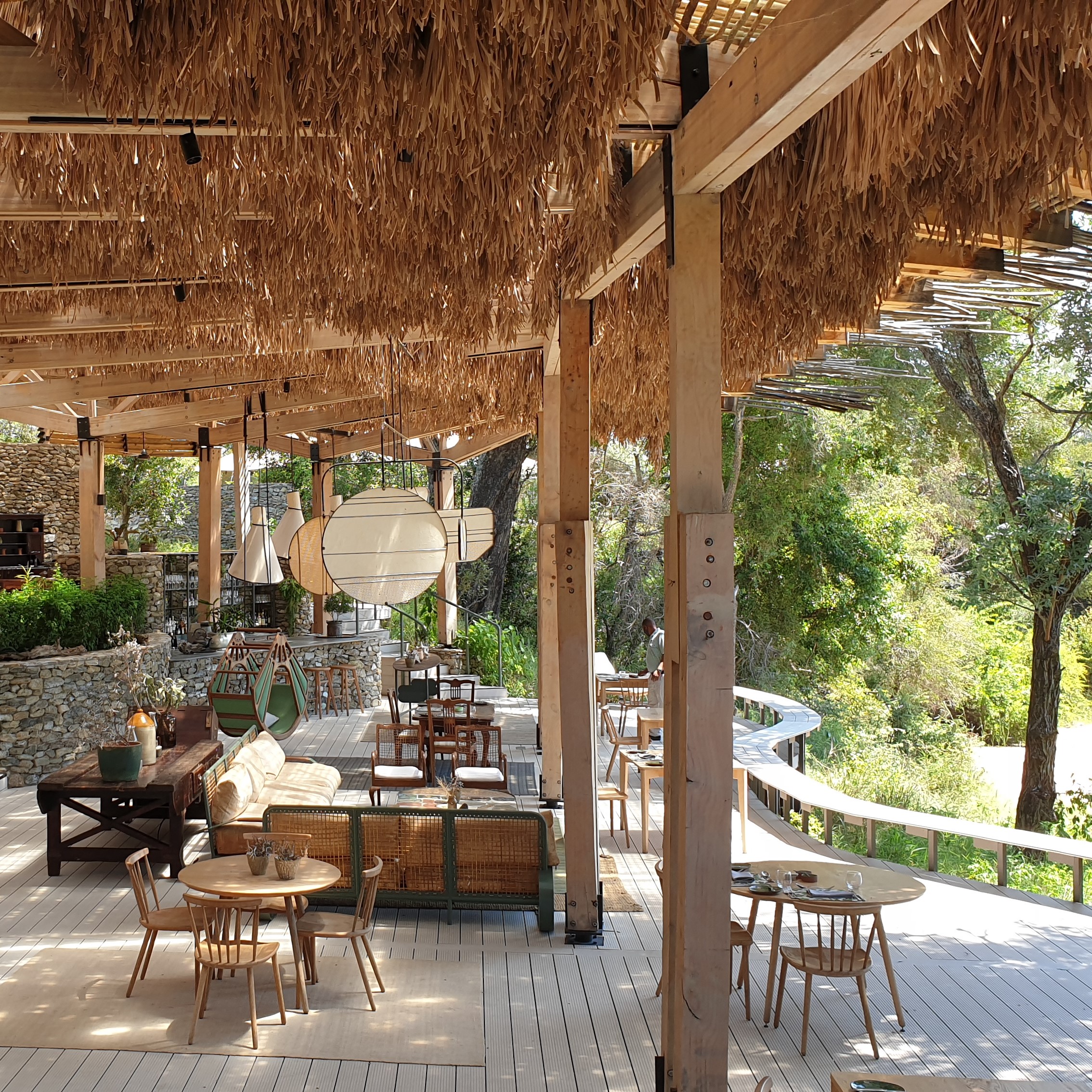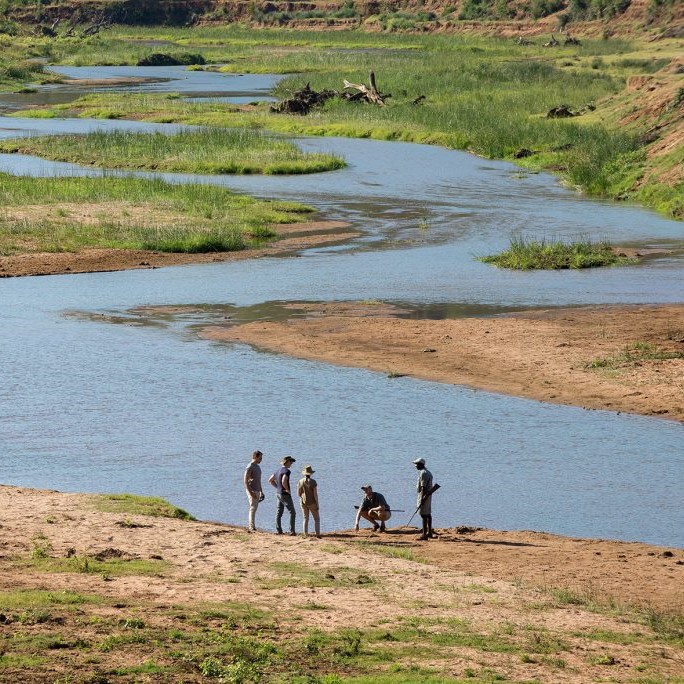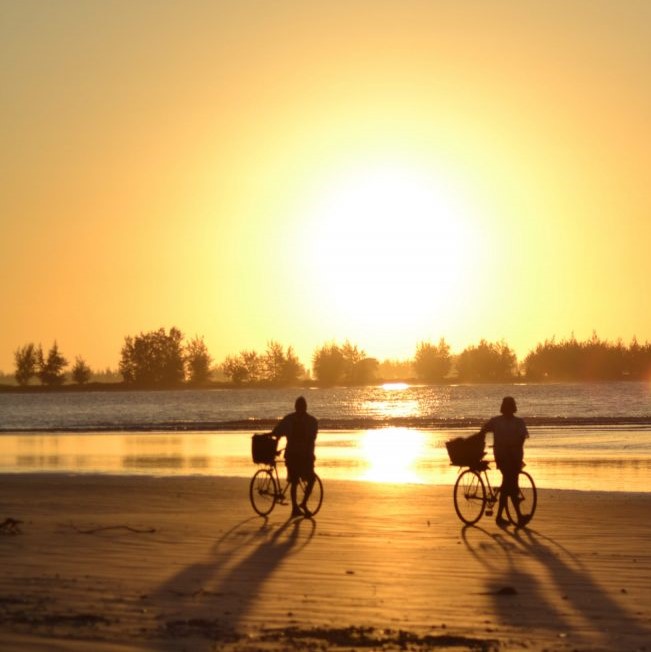We were visiting Thornybush Game Lodge, and those that know me, know that a safari experience is never just about the luxury, the game drives, the food. But rather about the people and the sense of place. The stories beyond the main story. And here there were plenty…

I decide that a good place to start the conversation is with Candice Grover, Head of Community for Thornybush. She tells me that when Thornybush refers to ‘Community’ they are including all their staff, the people in the surrounding communities, as well as each of their guests – which she says are often just as invested into their projects and initiatives as they are.
Thornybush Community Projects is the non-profit arm of Thornybush which Candice tells me “aims to nurture and uplift the surrounding local communities and businesses that many of our staff members come from. We currently help support a primary school, high school and local NGO that focuses on medical care for farm workers and child support for their children”.
“The greatest successes” she tells me “have come from two small farms, run by the local enterprises, that supply luxury lodges with their fresh produce”.
A few of the Thornybush Community Projects are:
Thousand Herbs and Vegetable Garden: The Thousand Herbs and Vegetable Garden has been operational since 2014 and operates on a portion of land leased from the Manyangana High School in Uthla. It is a co-operative that currently supports five ladies and grows quality herbs, vegetables, and edible flowers which they sell to the surrounding game lodges and local retailers as well as members of their community.

The ladies receive training and can attend skills development workshops. In addition to the produce they sell, they also play a vital role in providing produce to a daily school feeding scheme and can some produce to take home for their own use. They are also responsible for growing several medicinal plants for use by the community, some of which are remedies for common ailments such as headaches, stomach cramps and skin infections, as well as plants used for wound-care and as a general tonic. These include comfrey, moringa, helichrysum, yarrow, and lemon verbena.
“We help them with their business strategy, financial and administrative support, sales and marketing efforts, logistics and infrastructure development”, says Candice. “We’re proud that the garden is close to being financially sustainable and will imminently become a self-funding and independent business”.
“They turnover a respectable profit and have become a flagship project for other NGOs and community start-ups in their surrounding communities”.
The Hananani Primary School Garden: The Hananani Primary School Gardenwas started in 2014 at the Hananani Primary School in Dixie, a community near the Sabi Sand Game Reserve. The garden’s main purpose is to provide fresh produce for the making of a nutritious daily meal for 253 school children. Both learners and teachers are invited to participate in the preparation, planting and harvesting of the garden.

In keeping with the Thornybush ethos of empowering people, Keysman Nkuna, who started out as a labourer helping at the Hananani Vegetable Garden, is now a small-business owner in this fledgling garden business. Not only does it provide produce to the school, but any excess vegetables are sold on to locals – Candice tells me that he has recently invested in chickens so that he can add eggs to his offering.
Hlokomela: Close to Hoedspruit is the well-run project, Hlokomela, whose aim is to take care of farm workers with HIV/Aids- and TB-related illnesses. In addition to raising awareness, providing education and healthcare, they also provide children’s crèche to the children of farm workers, while their parents are being treated.
Fresh produce for the Hlokomela clinic and crèche is supplied by their herb-and-vegetable garden, with the surplus being available for purchase – all of which they do very successfully, Candice says. “Thornybush Community Projects has been a great supporter of the work Hlokomela does and is proud to have them provide quality healthcare to our inhouse teams.”
Manyangana High School: Thornybush Community Projects supports the Manyangana High School by giving monthly contributions to cover their electricity costs as well as to pay for their security guards, to ensure the school is a safe environment for its 800+ learners. The also help in other ways, such as organising extra lessons by volunteers, infrastructure upgrades and assisting with donations from travellers through the Pack for a Purpose platform.
Wild Shots Outreach: Wild Shots Outreach is an initiative that aims to engage young people from disadvantaged communities in wildlife and wild places through photography. It teaches new skills, introduces them to the natural world and raises the aspirations of these learners – the conservationists of tomorrow. Wild Shots Outreach is granted access into the Thornybush Nature Reserve in areas where the Thornybush lodges operate. These safari lodges host and facilitate game drives for the students. Many a budding conservationist or photographer in these groups, I’m sure.

As we all know, COVID-19 has put incredible restraints on many industries, especially tourism. And with little to no international travel happening in the foreseeable future, these hardships are likely to continue for some time. Thankfully, domestic tourism has helped, but the Thornybush team and their local communities are still under huge financial strain.
“Many families are battling” Candice tells me. “Those who were employed, have had to face a new stark reality of furlough or worse, retrenchment. Those who were already unemployed and struggling, are now in an extremely vulnerable situation”.
In their efforts to make sure that food security is maintained, they have partnered with Nourish Eco Village, to supply 326 families with vouchers redeemable at local supermarkets, for essential items. Each beneficiary receives an SMS every month which they can redeem from nearby grocery stores. Each voucher amount is based on what a monthly basic basket of essential food and toiletry items would be (1 Voucher = R500).
Candice suggests a visit to Nourish Eco Village, a non-profit focusing on building resilient communities that is in the nearby village of Sigagule, near Acornhoek. Their projects range from education and conservation to sustainable farming, economic empowerment, and tourism.
We meet Candice and the relatively new Nourish Program Director, Johann Nortje, on a sunny Sunday morning before heading out to Thornybush Game Lodge. Johann tells us that he has been working in and around Nourish on various projects over the last year or so and has come to experience first-hand how impactful the work is that the team at Nourish put together.

“The team at Nourish have done a vast amount of work over the past 10 years and it is a real privilege to be able to step in and see how we can take it even further,” he tells us. “From conservation education, through social enterprise and training to tourism our programming has real capacity to build strong and resilient communities that live on the borders of some of our biggest wildlife areas”.

We walk as we chat; the classrooms might be empty (being Sunday), but the love of educating is no less evident. Bright and cheerful murals adorn the container classrooms, teaching materials await enthusiast learners, and the playground waits for breaktime. The resident donkeys inspect the herb garden and need to be shooed out, and adopted stray dogs follow to check we aren’t breaking the rules.


Education is high on the Nourish priority list, from supporting toddlers in early development centres to the 50+ learners who are fed and have access to the eco village library for daily learning. Adult education and business development are also important aspects of what Nourish do – the Nourish business incubator assists local entrepreneurs with the skills they need helps to develop these grassroots income-generation projects, which inadvertently provide an income and support for many.
There are water tanks for water harvesting, compost bins and a recycling centre, much of which is utilised constructively. There are walls are made from recycled glass bottles; car tyres are now playground equipment and seats, and bottle caps replace floor tiles. Wall art by local artists add a splash of colour to the ochre-coloured earth and the indigenous greenery.



The Shik-Shak Back Packer buildings are empty, as are the volunteer huts and curio shop. The coffee machines are switched off and the murmur of foreign voices silenced. “It’s been tough during Covid”, Johann tells us, “a good portion of our revenue comes from tourism related activities, from those on site, to village tours and immersive activities. A number of our entrepreneurial projects rely on the purchase of goods from our curio shop too.”
Johann shows us the moringa orchard and chicken farm, the labyrinth herb garden, fruit trees as well as the vegetable garden – he is experimenting with local heirloom seeds to grow ‘genuinely African’ produce, which, Candice tells me he hopes will be incorporated into Thornybush lodge menus. He picks an amaranth seed pod, shakes out the tiny seeds and explains that ground up, this makes an incredibly nutritious flour, and its gluten free.



Seeing Johann’s enthusiasm and passion, I could tell that agriculture is important to him, and the teaching of it to others. He tells me that they run permaculture workshops and have a seedling nursery – all with food-security for local communities in mind.
We end up at the Eco-Kidz building, a cool structure (literally on this sweltering day) made using the rammed earth method of construction. The walls are adorned with wildlife art, tyres are stools and there are shelves heaving with books. Johann explains that Nourish’s Green Kids programme focuses on greening hearts and minds, educating the next generation of conservation ambassadors! “Part of our Green Kidz program includes our Eco Scouts, our Environmental Education lessons, our Conservation field trips, our Eco Camps, and our Green Kidz creche”.


With local communities living near game reserves, one of which being the Thornybush Nature Reserve, it is important to expose these kids to wildlife – many grow up without ever having seen a rhino or elephant. And how can we expect them to understand conservation if they have not been given the opportunity to learn to love it? Through the Green-Kidz programmes these kids are given the opportunity to interact with nature and learn about conservation. Some no doubt destined to be the conservationists of the future.
“Over the next few years my goal is to develop and expand our programming reach through focus on conservation, sustainability and resilience in such a way that our game reserves will see benefits in the rural neighbouring communities and that these wildlife communities will grow in their own appreciation and inter-dependence of the environment we live in” says Johann.
The vision that Nourish Founder, Sarah Bergs had 10 years ago was to “start a project that would connect communities to conservation in a meaningful way. That through community upliftment we could reach conservation outcomes, a thriving co-existence between animal spaces and people spaces; the buffer zones, where Nourish operates”.
I felt privileged to be walking around Nourish Eco Village and to be experiencing Sarah’s dream come to fruition – I should say ‘coming’ as there is so much more in the pipeline and always so much more that needs to be done. I understand why Thornybush is a proud supporter and why they encourage their guests to spend a few hours at Nourish, learning about their projects, lending a hand harvesting vegetables for their daily feeding scheme, spend time playing or reading in the day-care centre and touring the Eco village, or participating in one of the community tours and experiences.
Standing in the sweltering sun Candice continues to tell me more about the Thornybush ethos.
“We have a commitment to employing locally, so the majority of our staff come from the surrounding local communities, with many of our team having been with Thornybush for over 20 years! A major reason for this is the sense of family we have within the team and how that feeling of inclusivity extends to the surrounding villages, suppliers, and our guests. We’re immensely proud of having nurtured this culture over the years, a culture that has its own platform in the Thornybush Community Projects,” says Candice.

“Our efforts are focused on the surrounding communities and making sure that we use local suppliers and artisans as often as we can. Our philosophy is ‘Unity is Strength’ so many of our projects are designed to empower people and small businesses by providing them with the tools to build a fulfilling, sustainable life” she says. “More than the aesthetics of the lodges or even the wildlife experiences, it’s the people who are the soul of Thornybush and the reason people love coming back to us. Knowing this, we always aim to keep our teams engaged and passionate through setting goals, creating opportunities, and developing skills.”
Candice tells me that “helping every member of our Thornybush family reach their full potential is incredibly enriching and creates an environment that is easy to work in, bringing out the very best of what each and every one of us has to offer.”
“What keeps me motivated is seeing the people and projects we invest in, grow and thrive.”
I ask her about the Thornybush team, and if there are any special stories I should look out for. She laughs, and tells me that there are many, but “best if you find them yourself over the next few days that you are there”.
But that is story for another day…
Click HERE to read this in the latest Responsible Traveller Mag

